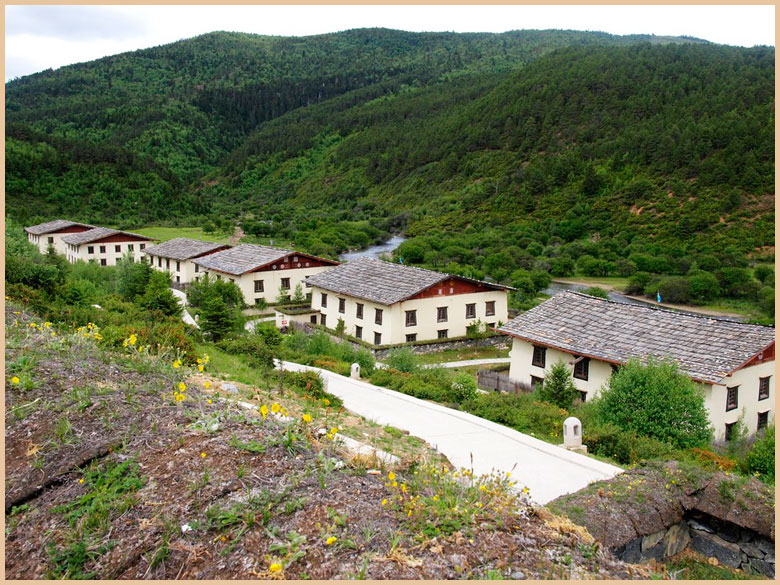
Temple of 5 Wisdom Buddhas, Ringha
According to an ancient legend, a venerable Buddhist monk from India went on pilgrimage to Tibet accompanied by his goat. After traveling for three years the odd couple reached the valley of Ringha and his goat refused to move another inch. That moment the monk knew that he had found a sacred place where he had to stay and build a temple on the hill.
Even though the origins of the "Temple of the 5 Wisdom Buddhas" are shrouded in mystery, the place has always held a special place in the hearts of the Tibetan community and is considered one of the five prominent Tibetan temples in the Yunnan province. At least 700 years old, the compound was visited by the 5th Dalai Lama who meditated in the grounds. And while much of the building was destroyed during the Cultural Revolution (1966-1976), the local villagers raised the funds to rebuild the main prayer hall, a small and modest structure. Unfortunately, only three miniature statues have survived from the original temple.

Several religious practices are associated with Ringha’s "Temple of the 5 Wisdom Buddhas". Devotees come here to pray for good health, to be cured of illnesses and to be blessed with children. In an effort to accumulate good karma, the faithful release chickens and other animals that had been slated for slaughter and allow them to roam freely. Afterwards, the devotees walk clockwise around the sacred hill and pray to have their wishes fulfilled. The serenity of the old pine forest helps with the concentration on the prayers.
Hundreds of prayer flags inscribed with auspicious symbols, invocations and mantras are planted on the hill, as it is believed that the prayers and mantras are blown heavenward as offerings to the deities and henceforth bring benefits to the ones who hang them, their neighborhoods and all sentient beings, even flying birds.
On the way downhill, rotating prayer wheels or chokhors line the stairs with Om Mani Padme Hung mantras etched in relief on the cylinders. Tibetans believe that every rotation of a prayer wheel equals one utterance of the mantra, so by turning the wheels clockwise one accumulates merits, replaces negative effects with positive ones and improves one’s karma in the next life. In the process, Buddhists also recite the Om Mani Padme Hung mantra, which teaches us that one can transform one's impure body, speech and mind into those of a Buddha by following the Path, which requires both wisdom and the correct method.
Admission Fee:¥0

You will only receive emails that you permitted upon submission and your email address will never be shared with any third parties without your express permission.
